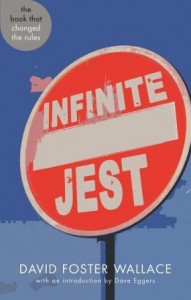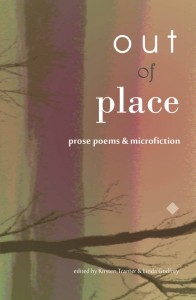
This week we meet the author of ‘Pilgrim’s Dream’, a haunting piece of microlit from our latest anthology, Out of Place. Seabird Brooks tells us about the story behind his piece, about writers who inspire him, about endings and beginnings. To grab a copy of this fine collection of over forty 200-wd microliterature selected by guest editor Kirsten Tranter and series editor, Linda Godfrey, click the cover below.
What inspired you to write the piece of microliterature which will appear in Out of Place?
Last year my partner and I spent nine months travelling through South America, sleeping in hostels, meeting people from all different parts of the world. And it seemed to me that one of the most interesting aspects of the whole thing was how each night we would share these intimate spaces with people we barely knew, would share what I’d consider the typically private act of sleeping with people we’d met like an hour earlier or five minutes earlier or sometimes not at all. So I wanted to try and explore that, to find a way to tap into the strange unspoken energy that existed in those rooms full of people who knew nothing about each other.
How do you know the point at which a piece you are writing should end? Do you have any favourite closing line/s from your own work or from another writer? If so, which ones and why?
I rely on instinct and revision to find the point at which a story should end, and even then I’m not sure. Rhythm is important as well, the way the closing line/s sound when read aloud. But I think essentially it comes down to each individual story, to what that story requires in its telling, and what it doesn’t.
For me, at least in the short story form, I’ve always loved the endings of both George Saunders and Denis Johnson. They have this way of getting their characters to reach out to the universe for answers, to transcend their own tragic lives for a moment and grapple with something far, far bigger. I love that. I wish I knew how to do it. This ending in particular, from George Saunders’ story ‘The 400-pound CEO’, is a favourite of mine:
Maybe the God we see, the God who calls the daily shots is merely a sub-god. Maybe there’s a God above this sub-god who’s busy for a few God minutes with something else and will be right back and when he gets back will take the sub-god by the ear and say, “Now look, look at that fat man. What did he ever do to you? Wasn’t he humble enough? Didn’t he endure enough abuse for 1,000 men? Weren’t the simplest tasks hard? Didn’t you sense him craving affection? Were you unaware that his days unraveled as one long bad dream?”
And maybe as this sub-god slinks away, the true God will sweep me up in his arms, saying, “My sincere apologies. A mistake has been made. Accept a new birth as token of my esteem.” And I will emerge again from between the legs of my mother a slighter and more beautiful baby, destined for a different life in which I am masterful, sleek as a deer, a winner.
Tell us about some of the writers that you’ve loved in the past and who you are reading now.
Those writers I’ve mentioned, Denis Johnson and George Saunders, along with Roberto Bolano, Cormac McCarthy and Don DeLillo, are really important to me and have influenced me a lot. They’re the heavyweights as far as I’m concerned, the authors I look to when I really want to be inspired by the possibilities of literature. And of course there’s a lot of other writers I enjoy as well. Far too many to mention here.
At the moment I’m reading David Foster Wallace’s Infinite Jest, which is dense and sprawling and exhausting and amazing, and probably the hardest book I’ve ever read. But I’m enjoying it, even though I’ve been going at it for months and am still only halfway through.

What you do if you haven’t written anything in a while and you want to get started writing again? Share one of your favourite writing exercises with our readers.
If I haven’t written anything for a while I usually don’t need much to get me started, because there’s always some little image or idea I’m carrying around with me and wanting to get out. I struggle more with the day-to-day process, making myself sit down and do it whether I feel like it or not. I read about guys like DeLillo and Murakami and the way they work at it for hours every day and I just shake my head. I want to be like that, but I swear to God, it’s the hardest thing. To push through the hard times and not give up is a constant struggle. But hopefully I’ll get there.
I’m not much one for writing exercises, but a thing I like to do sometimes is write about something from my own life, some little anecdote or event that actually happened but is not necessarily super exciting, and then, through the words and the process, try to uncover the interesting parts of that story, the truth of how I actually feel or felt about that thing that happened to me. I don’t know if you’d classify that as a full-on writing exercise, but it can be pretty interesting to confront yourself like that and can often lead to some kind of starting point for a story, or can even turn into a pretty good story in itself.
SEABIRD BROOKS is a scribbler from the South Coast of NSW. His fiction has appeared in Tincture, Seizure and Verity La. In 2014 he was awarded runner-up in the Josephine Ulrick Literature Prize.
